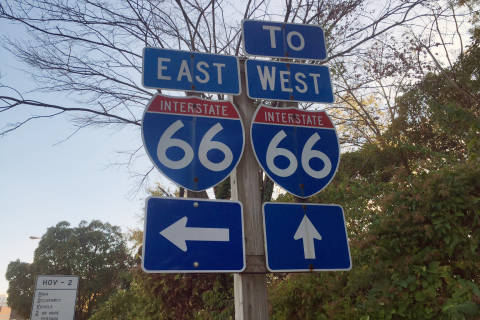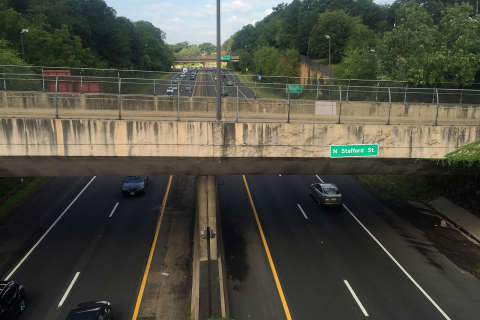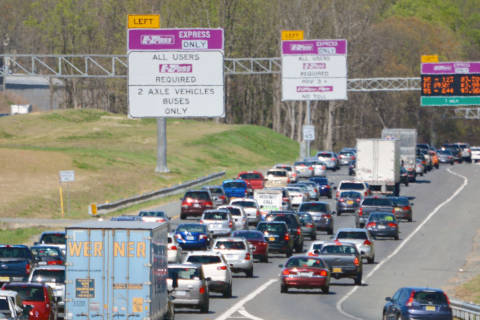WASHINGTON — Virginia has given up its special federal exemption that would have allowed toll booths on Interstate 95 between Fredericksburg and the North Carolina line.
In a letter dated May 24, 2016 but just obtained by WTOP, Virginia Department of Transportation Commissioner Charles Kilpatrick told the Federal Highway Administration that “based on changes in law and our new project development and rating process we are no longer considering the I-95 corridor for tolling under this program.”
Kilpatrick said the FHWA could offer Virginia’s exemption to another state. The Oregonian reported that Oregon is interested in taking the slot to institute tolls on Interstate 5 in Portland or Interstate 205 in Oregon City.
The federal government first granted Virginia the tolling exemption in 2003 for Interstate 81 and then transferred it in 2011 at the state’s request to Interstate 95. It would have allowed Virginia to be one of three states to institute tolling on an existing highway to pay for reconstruction and rehabilitation of the road. Generally today, tolls are only allowed to be added where new lanes are added to a road.
The plan for tolls between Fredericksburg and North Carolina was never implemented. It could have included a toll booth near the North Carolina line or tolls at either end of the 126-mile corridor. North Carolina had its own exemption under the program to toll I-95 between the Virginia and South Carolina borders.
Missouri had the third exemption under the program that was supposed to allow for three pilot projects across the country, but all of the projects missed a federal deadline of December 2016.
In Virginia’s case, original plans to include tolls on Interstate 81 to generate funding for maintenance and repairs sparked opposition and eventually a law that tolls could not be implemented there without direct permission from the General Assembly. Eventually, the switch to a plan to toll Interstate 95 south of Fredericksburg prompted a similar law a few years later.
When Gov. Bob McDonnell’s administration first proposed the tolls on I-95 in 2010, he said in a letter that “the imposition of tolls on I-95 is the most efficient and timely method to generate the much-needed revenue to make these improvements to the corridor.” The McDonnell administration estimated that tolls of $2 to $4 per car could have been in place within a few years to generate $30 to $60 million per year.
In 2012, McDonnell said tolls were still about two years away if the project moved forward.
A few years later, Virginia lawmakers passed a broad transportation funding measure that changed gas and sales taxes to raise more money for roads. Virginia has since introduced a system to rate transportation projects as a way to decide how to spend the still-limited money.
Virginia is now in the process of expanding or adding a number of toll facilities, including building new toll lanes on Interstate 66 outside the Beltway, implementing tolls for solo drivers at rush hour on Interstate 66 inside the Beltway while expanding the hours where HOV rules apply, building new toll lanes in the Hampton Roads area and extending the 95 Express Lanes.








